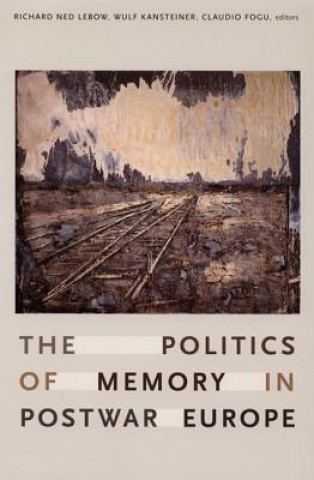
Doručení
Nákupní rádce





Nehodí se? Vůbec nevadí! U nás můžete do 30 dní vrátit
 Dárkový poukaz
V libovolné hodnotě
Dárkový poukaz
V libovolné hodnotě
S dárkovým poukazem nešlápnete vedle. Obdarovaný si za dárkový poukaz může vybrat cokoliv z naší nabídky.
Politics of Memory in Postwar Europe
 Angličtina
Angličtina
 88 b
88 b
30 dní na vrácení zboží
Mohlo by vás také zajímat


For sixty years, different groups in Europe have asserted interpretations of World War II and their respective countries' roles in it consistent with their own political and psychological needs. The conflict over the past has played out in diverse arenas, including film, memoirs, court cases, and textbooks. It has had profound implications for democratization and relations among neighbouring countries. This collection provides a comparative case study of how, since 1945, memories of the Second World War have been constructed and revised in seven European nations: France, Germany, Austria, Switzerland, Poland, Italy, and the USSR (Russia). The contributors include scholars of history, literature, political science, psychology, and sociology. Country by country, they bring the specifics of each nation's post-war memories to the fore in essays commissioned especially for this volume. Their use of similar analytical categories facilitates comparisons. The collection includes an extensive introduction reflecting on the significance of Europeans' memories of the Second World War and a conclusion that analyzes the implications of the contributors' findings for memory studies. These two pieces tease out some of the findings common to all seven countries: for instance, in each nation, the decade and a half between the late 1960s and the mid-1980s was the period of most profound change in the politics of memory. At the same time, the volume demonstrates that Europeans understand the Second World War primarily through national frames of reference, which are surprisingly varied. Memories of the Second World War have important ramifications for the democratization of Central and Eastern Europe and the consolidation of the European Union. This volume clarifies how those memories are formed and institutionalized.
Informace o knize
 Angličtina
Angličtina
Kategorie




 Jak nakupovat
Jak nakupovat
























